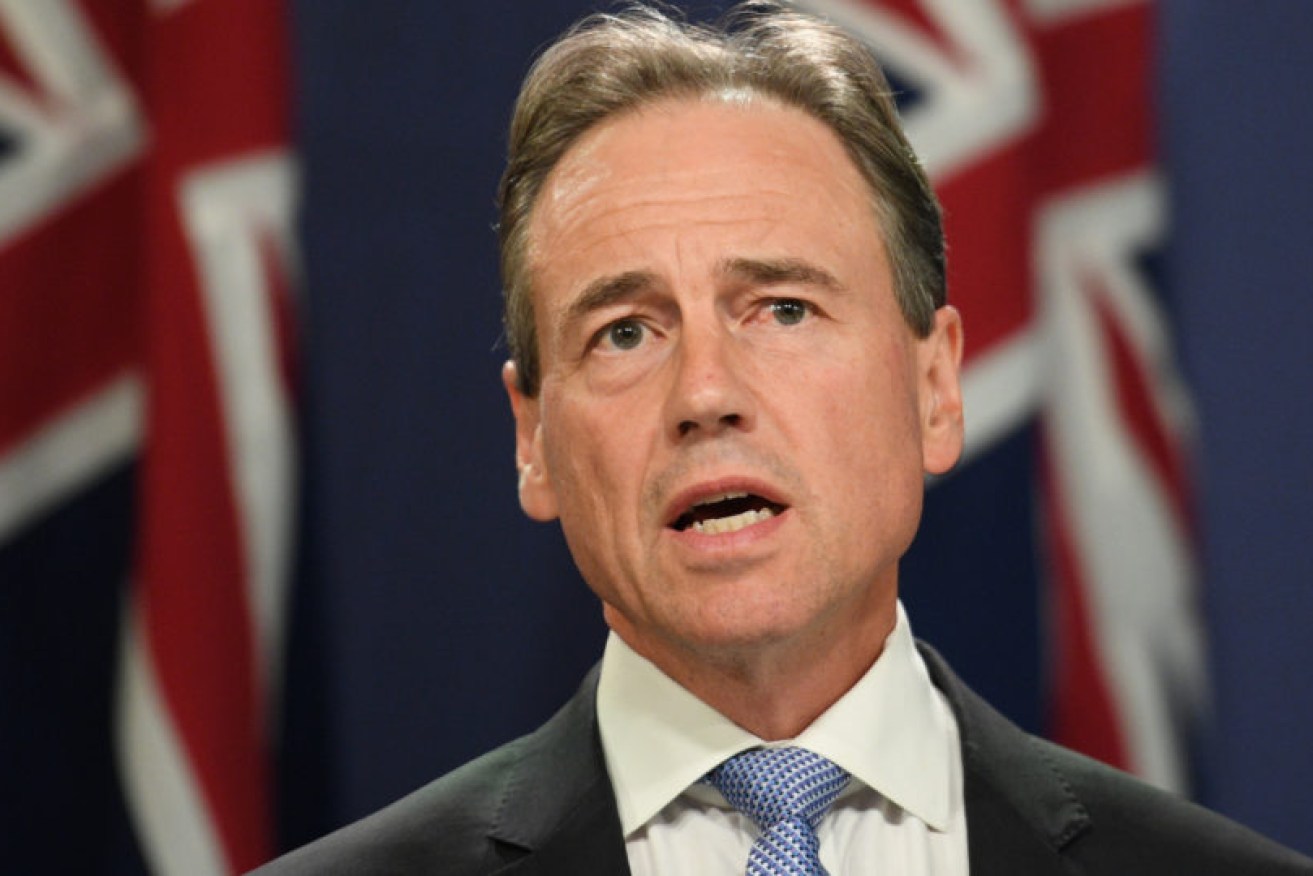‘World first’ children’s mental health reforms to fix ‘fragmented’ system


Health minister Greg Hunt. Photo: AAP
The federal government’s mental health experts say Australia’s system for helping children is “fragmented” and plagued by “inequity”, with Health Minister Greg Hunt to launch what is being called a world-first strategy to plug the holes and address troubling psychological trends in kids.
Some 14 per cent of Australia’s population under 18 experience mental illness each year.
A new government report has raised alarming concerns, saying the mental health system is too complex, expensive and difficult for families to navigate.
“Half of all adult mental health challenges emerge before the age of 14, yet few children below the age of 12 receive professional support,” assistant minister for mental health, David Coleman said.
“As a nation, we need to acknowledge this and do everything we can to change it.”
On Tuesday, Mr Hunt will launch Australia’s first National Children’s Mental Health and Wellbeing Strategy.
He says it’s the first of its kind in the world, specifically aimed at supporting children under the age of 12, and will help inform ongoing reforms to Australia’s mental health framework.

The ‘wellbeing continuum’ proposed in the report.
At the centre of the strategy is what the National Mental Health Commission (NMHC) calls a “a fundamental, cultural shift” in how Australia helps kids.
It will place a greater emphasis on early intervention and treatment for children experiencing mental ill health, looking to support children at early stages rather than waiting for mental issues to develop.
“Currently our mental health system focuses on treating people when their mental health is poor. We want to change this,” the report sets out.
“The way our current system works sometimes means a child needs a diagnosis of mental illness before they can get help, meaning children have to be unwell before they can access treatment.”
The report said an estimated 50 per cent of adult mental illness begins before age 14, and can be exacerbated in children by sadly common household factors like abuse, violence, neglect, parental divorce or substance abuse.
Christine Morgan, the NHMC’s CEO and suicide prevention adviser to Prime Minister Scott Morrison, called the report “one of the most important and meaningful and significant pieces of work we have done”.
“We know that mental health challenges often begin during childhood and if left unattended they can lead to poor outcomes in adulthood,” she and NMHC chair Lucy Brogden wrote in a foreword to the report.
But despite a recent federal government focus on mental health and suicide prevention, Professor Frank Oberklaid and Professor Christel Middeldorp – the co-chairs of the strategy – say providing resources to support child mental health has been “problematic” for governments.

Parents should be given more resources to help their kids, the landmark report recommends. Photo: Getty
“Services tend to be delivered in narrow, single-discipline clinics despite many children having complex needs and requiring a multidisciplinary approach,” they said in the report.
“Parents, as well as many professionals, have difficulty navigating a fragmented service system; and there are long waiting lists for assessment and treatment for all but the most severe problems.”
The report is scathing of current approaches for children, claiming there is “no real ‘system’ of affordable, integrated care, delivered on the basis of need”.
“Instead, there is a fragmented assortment of programs, service offerings, inconsistent sources of resources (that are not necessarily evidence based), siloed professionals in private practice, alongside inequity in access due to a family’s geographical and financial circumstances,” it said.
The report calls for a model of “integrated child and family wellbeing services”, where parents as well as children can access assistance, in order to better support families.
This is owing to the concerns raised in the report around how family factors weigh on child mental health.
Surveys show some 8 per cent of Australian infants and 20 per cent of 10-year-olds having multiple risk factors for developing mental illness, including household dysfunction or other adverse childhood experiences.
About one in seven children aged between four and 17 experience mental illness each year, the report said.
“Caring for the mental health and wellbeing of our younger children, especially during the COVID-19 pandemic, is critical,” Mr Hunt said.

National Mental Health Commission CEO Christine Morgan. Photo: AAP
“We need a mental health and wellbeing system that is well designed, comprehensive and nationally consistent.”
The plan said children should be supported and family risk factors addressed “from conception”.
That could include identifying parents who may be struggling, and helping them support their children’s wellbeing.
Increased mental health literacy, to help parents recognise signs of poor mental health in their children, is also cited as a key factor.
The report recommends better transitions between childhood and adult services, easier and more accessible information about where to find help, and better support for parents to help their own children,
In early childhood education, changes include requiring all learning services and primary schools to implement a wellbeing plan for students, and having designated wellbeing staff members in those settings.
Mr Hunt said the children’s plan was part of the government’s long-term national health plan, and would be a key guiding document in ongoing reforms to the mental health system.
The strategy is available on the Commission’s website.







